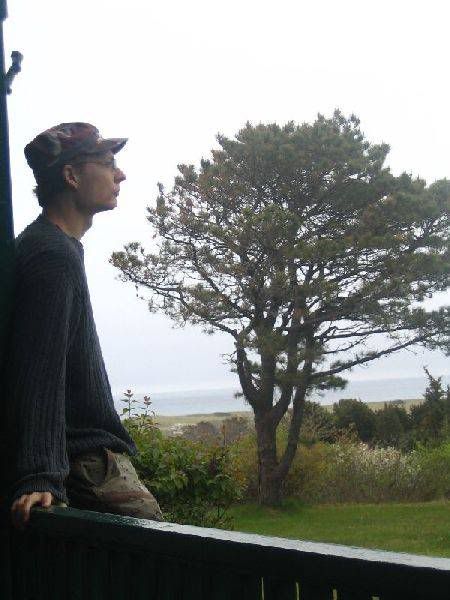Class, Race and the Venezuelan Election
Class, Race and the Venezuelan Election
By Alexander Knight


Tomorrow, December 3, Venezuelans will go to polls to decide whether to extend Hugo Chavez’s presidency for 6 more years, or to put a stop to the “Bolivarian Revolution” and usher in a new period of rule by the anti-Chavez forces, led by Manuel Rosales. The world is watching with immense interest, in no small part because populist President Chavez has openly challenged U.S. President George W. Bush on many occasions, including a famous UN speech in September where he referred to Bush as “El Diablo.” As such, the eagerly awaited results are likely to have international implications, but Venezuelan perspectives on the two candidates have more to do with which side of the racial and class divide one finds oneself on.
In this writer’s 3-month stay in Caracas, he has been witness to a level of class warfare never experienced in the United States. There is a deep and immediately obvious gap between the upper and lower classes in Venezuela, such that in effect there exist not one but two Venezuelas, separated by skin color and income level. Life in one Venezuela feels like some kind of imitation of an idealized U.S. or Europe, where people shop in malls, wear the latest fashions out to trendy nightclubs, own cars or SUVs, and sleep in up-scale apartments and houses in very specific areas of the cities, away from the darker and poorer elements, except perhaps for a few servants, janitors and maids.
The upper classes also seem to be largely afflicted with an overly-developed sensitivity towards ancestry, preferring always to cite any example of European heritage rather than to admit the presence of African or indigenous blood in their veins. In truth, a substantial portion of the group is white in appearance, such that a blonde-haired, blue-eyed gringo such as myself has had no problems blending in with the crowd during Rosales’ many “Avalancha” marches in Caracas.
Inside the other Venezuela, people are less obsessed with the sophistication and culture of the First World, and are just trying to get from day to day. Estimates vary according to the standards accepted, but as many as 60-80% of Venezuelans live in poverty. Many do not have access to electricity or heat in their homes, a great portion of which stretch across the hills outside the cities in the so-called “barrios” and “ranchos,” where homes look more like temporary tin shacks than proper dwellings for families. The inhabitants of this side of life are not so concerned with having European heritage, as many do not anyway. They are overwhelmingly brown and black, mestizo, mulatto and indigenous.
In this Venezuela, Chavez is viewed as a hero. A recent AP Poll showed that these poorest Venezuelans favor Chavez to Rosales by a factor of 70 to 16%. (http://news.yahoo.com/s/ap/20061124/
ap_on_re_la_am_ca/venezuela_presidential_poll) Chavez, or “El Comandante” is spoken of as one of their own, a normal Venezuelan, who came to power through the military, a regular outlet for Venezuelans of more modest backgrounds. To this Venezuela, Chavez’s boasts of having African blood are much more important than, for example, fears that he could be getting too friendly with Cuban dictator Fidel Castro.
In a complete contrast to the opposition marches, when this writer attended Chavez’s most recent rally this past Sunday, his white skin and blonde hair made him stand out like a sore thumb. Of perhaps 500,000 in attendance, it appeared that this writer was 1 of perhaps no more than 500 visibly white marchers.
But for most people here, politics are simply a matter of class interest. For those on the bottom, the Bolivarian Revolution has provided numerous opportunities to improve their situations, whether through the numerous Misiones that have provided free Education, Health care, or other services which the previous government did not make available. New government aid programs are very diverse, from debt and interest rate relief that gives families the chance to own quality homes for the first time, to the new Communal Councils, which act as outlets for participatory democracy previously unknown in most of the poorer neighborhoods of Venezuela.
This writer recently had the opportunity to see firsthand a few of the new government Misiones, and was very impressed. One in particular, Mision Hipólita, is charged with the responsibility to eliminate homelessness within Caracas, by providing both immediate and long-term support to indigents, many of which suffer from histories of mental problems and drug abuse. Certainly no small task, the workers at the four-month-old center believed that care and support could be provided that for many will make the difference between a life on the streets and having a house of one’s own.
Chavez has certainly done enough to gain the support of the lower classes of Venezuela, and for that most believe that he will handily win the elections tomorrow. It’s not that there aren’t poor, non-white, even black Venezuelans among Rosales’ support base. There are, but they are certainly a minority. And in a country where poor non-whites are the majority, that is a troubling disparity for the opposition.
That previously mentioned AP Poll gives Chavez an advantage of 59 – 27% among likely voters, and while the privately owned television stations in Venezuela broadcast much tighter estimates, ultimately one’s perspective all comes down to the class- and race-based lenses through which life in Venezuela is viewed.


0 Comments:
Post a Comment
<< Home